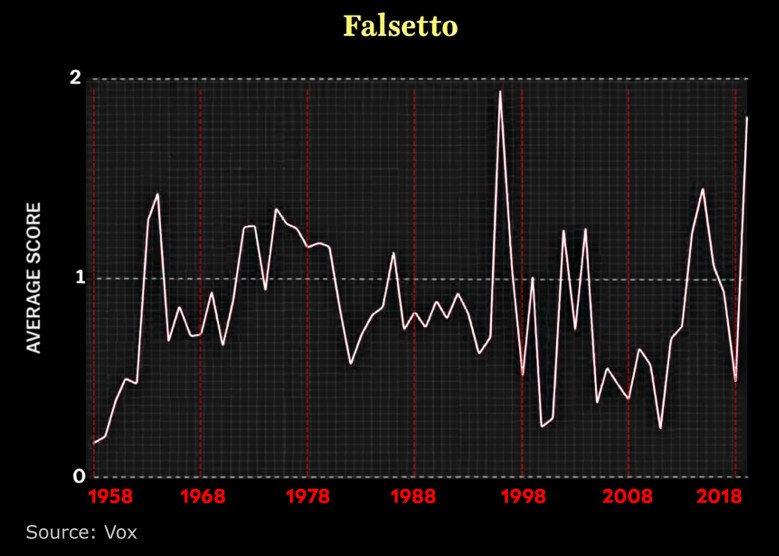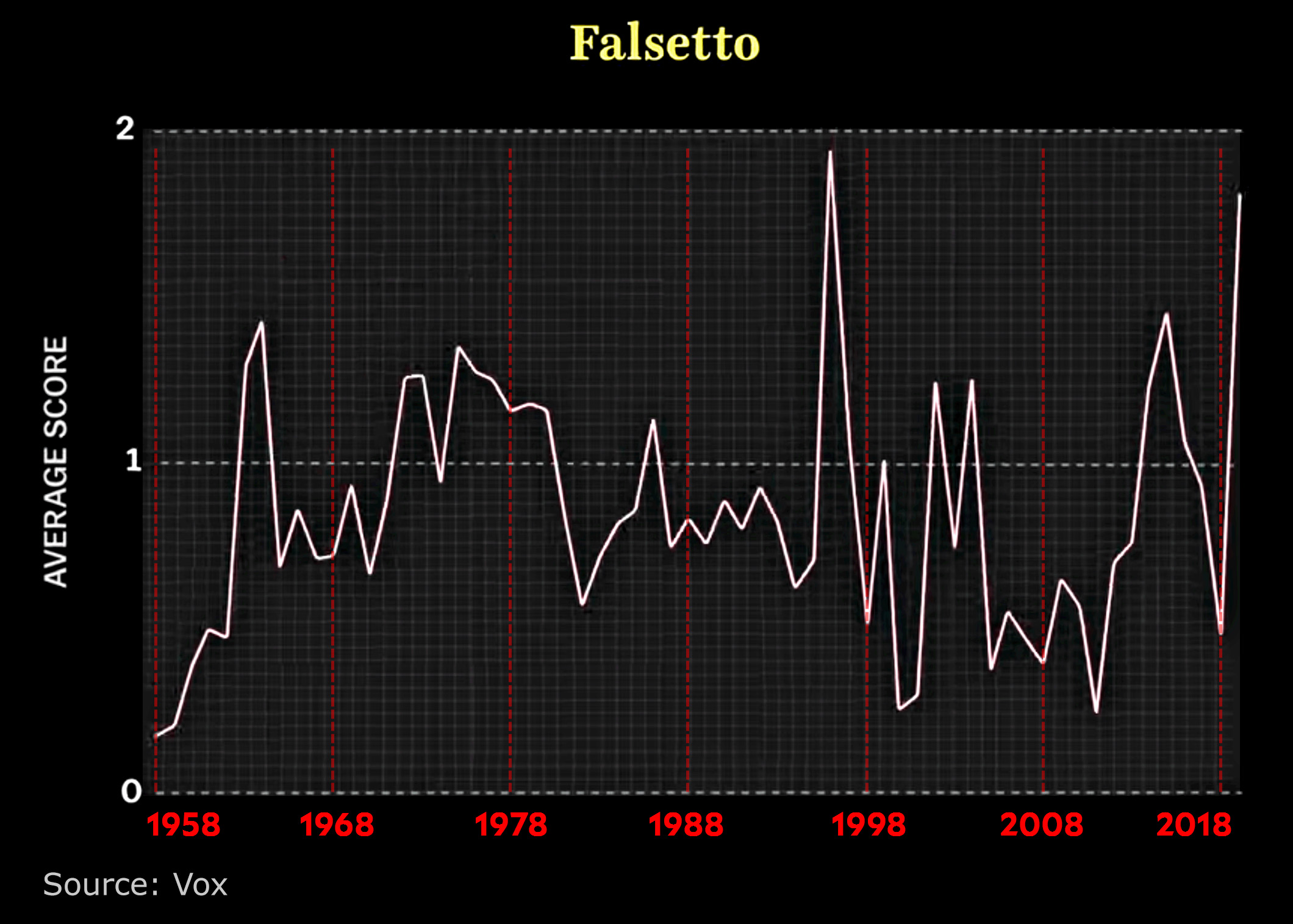
I hate falsetto. That doesn’t mean I hate you unless you also hate falsetto. De gustibus. But to me it sounds like fingernails on a chalkboard. So naturally I was curious when Vox put up a video claiming to chart the popularity of falsetto in pop music over the years.
You’ll have to watch the video if you want the whole story, including the difference between falsetto and a naturally high voice, but in the end they came through. They used Pandora metadata to score all the Top 10 songs since 1958, and then tossed out everything (mostly hip hop) that didn’t include any singing. Once that was done, here’s what they came up with:

I was born in an unusually falsetto-less year, but since then there’s no real trend to speak of. The ’70s were a strong decade for falsetto and the aughts were a weak decade, but that’s about it.
Unfortunately for me, they also discovered that falsetto songs charted better and longer than other songs, so it’s here to stay. Oh well.















